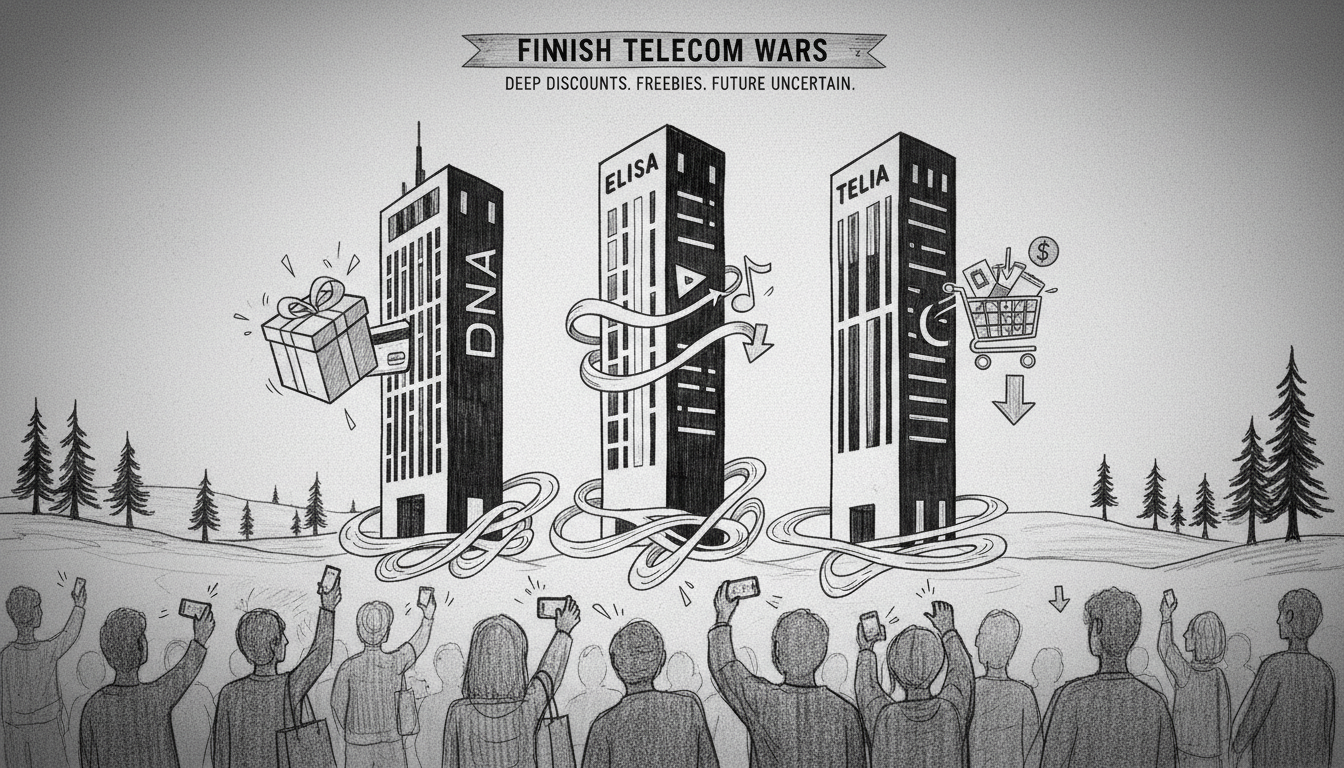Finland's three major telecom operators are engaged in an unusually fierce battle for mobile customers. DNA, Elisa, and Telia are competing aggressively as the total number of mobile subscriptions in Finland has stopped growing. This market saturation has triggered intense price competition and generous bonus offers for new customers.
DNA's mobile business director Mikko Valtonen confirmed the situation. He said competition has recently intensified beyond normal levels. All operators are offering more bonuses than usual to attract customers from their rivals.
Price-conscious consumers are benefiting from this corporate battle. One reader recently accepted an offer from a salesperson in a shopping center. Their new 300 Mbps 5G subscription costs just 17.99 euros monthly. Their previous similar plan cost 31.99 euros. The deal included a 50-euro gift card for a retail chain. The salesperson immediately handed over two chocolate bars as an extra incentive.
Telia's mobile business director Tuukka Tolonen explained the variety of bonuses available. These offers vary by sales channel and timing. During autumn, Telia has provided device discounts, accessories, Wolt+ memberships, and Lidl gift cards to attract new subscribers.
This competitive situation reflects broader trends in Finland's mature telecommunications market. With nearly universal mobile penetration, operators must poach customers from each other rather than finding new users. The strategy mirrors patterns seen in other saturated Nordic markets where customer retention becomes increasingly expensive.
Finnish consumers have historically shown strong price sensitivity in telecom services. The country's high digital literacy means shoppers actively compare offers. Many Finns regularly switch providers when better deals emerge, creating constant churn that operators must manage.
The current bonus war has significant implications for Finland's digital infrastructure investment. When operators compete primarily on price, profit margins shrink. This potentially affects their capacity to invest in next-generation network development. Yet consumers enjoy immediate benefits through lower prices and attractive incentives.
International observers might find Finland's telecom market dynamics particularly interesting. The country that invented mobile giant Nokia now hosts one of Europe's most competitive telecommunications environments. This creates both challenges for operators and opportunities for cost-conscious mobile users.
What does this mean for Finland's digital future? While consumers benefit from short-term price advantages, the long-term effects on network quality and innovation remain uncertain. The situation demonstrates how mature markets evolve when growth phases end and consolidation pressures increase.

